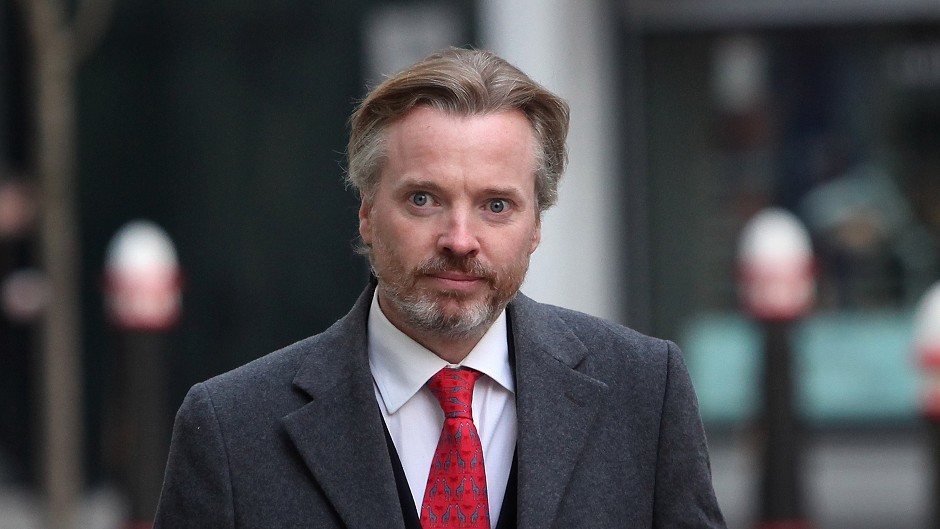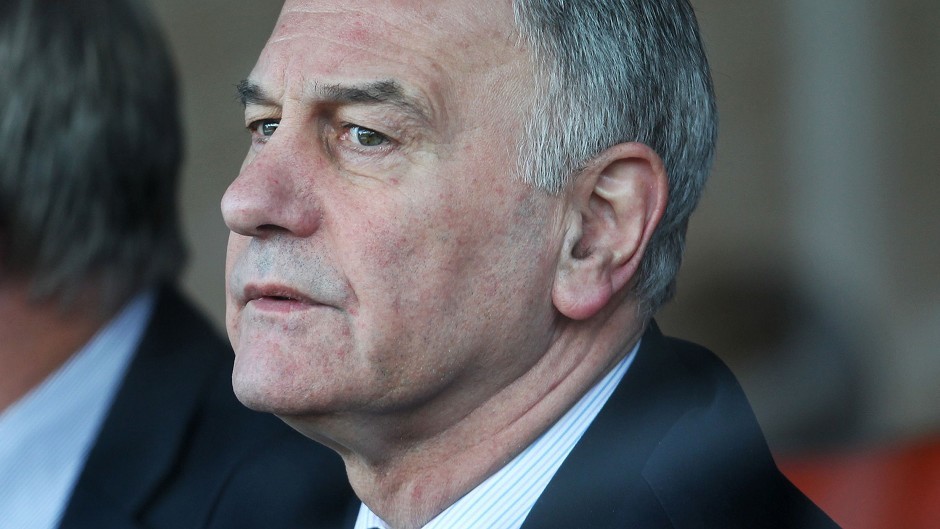Former Rangers bosses Craig Whyte and Charles Green have appeared in the high court charged with participating in a major fraud.
Mr Whyte, 44, Mr Green, 62, appeared at the High Court in Edinburgh on Friday alongside David Grier, 50, David Whitehouse, 50, and Paul Clark, 51.
Prosecutors allege that the five men joined Gary Withey, 51, to embark on a course of criminal conduct during their time at the ‘Gers.
The businessmen came to prominence following Sir David Murray’s decision to sell Rangers in May 2011.
The Crown claims that in the months before and after the take over, Mr Whyte, Mr Withey, Mr Whitehouse, Mr Grier and Mr Clark carried out a fraudulent scheme.
Lawyers claim they obtained a total £28,262,094 from ticket company Ticketus and a business called Merchant Turnaround PLC.
They also claim that Whyte, Whitehouse, Clark and Green conspired with each other to break the law following the administration of Rangers in 2012.
It is claimed they took part in a scheme to acquire the club for a sum less than its true market value.
Now prosecutors have begun the process to bring the six men to trial.
The Crown were also hoping to bring another man – Imran Ahmad, 44, -to trial.
However, for reasons which cannot be disclosed, Crown Office lawyers have temporarily stopped proceedings against Mr Ahmad, an ex club director.
Now, the case will next call for another procedural hearing later this year.
The claims surrounding the six men emerged during a procedural hearing on Friday morning.
The five men arrived at courtroom number three before proceedings began at 10.30am.
Mr Whyte, of Lancashire, arrived at the legal complex with long hair, a smart single breasted suit and in the company of a glamorous woman.
Mr Withey, of Woking, Surrey, was excused from attending court and wasn’t present during the hearing.
During proceedings, Lord Turnbull imposed reporting restrictions on what was said at the hearing.
But the press can report the details of a 20 page legal document which alleges the accused men’s criminal behaviour.
Prosecutors claim that between January 1 2010 and February 16 2012, at various locations in Scotland, England, France and Monaco, Whyte, Withey, Grier, Whitehouse and Clark indulged in a conspiracy.
It is alleged that they conspired to “acquire and obtain by fraud a majority and controlling stake in the shareholding of Rangers.”
Prosecutors claim that they acted illegally in their dealings with ticket company Ticketus over a deal regarding the sales of Rangers season tickets.
It is claimed they obtained £28,262,094 from Ticketus and Merchant illegally and that they then used the money to persuade Rangers that they could afford to take the club over.
Prosecutors allege that they were then able to acquire “85.3 per cent of the issued capital of the club for £1 by fraud and did thus obtain a majority and controlling stake” in the shareholding of the club.
The second charge concerns the conduct of Mr Whyte and Mr Withey and a company called Wavetower Limited.
It is with regard to a debt owed by Rangers to the Bank of Scotland plc. Prosecutors allege that they “unlawfully” gave the club “financial assistance” by causing Rangers to enter into a “ticket purchase agreement” with Ticketus.
It is claimed that this was done for “the sole or main purpose of facilitating the acquisition of the club by providing finance which was lent by the Club to Wavetower Limited which in turn allowed Wavetower Ltd to repay the club’s debt to the Bank of Scotland PLC.”
Prosecutors claim that this contravened the Companies Act 2006.
The third charge alleges that on May 20 2011 at the Hampden Park premises of the SFA, Mr Whyte concealed the fact that he had been a disqualified company director.
It is claimed that he did this to satisfy the SFA that he was a “fit and proper” person and that he could act as director at Rangers football club. It is claimed that Mr Whyte acted fradulently.
The fourth charge alleges that between December 13 2010 and January 31 2012, at Ibrox stadium and various locations in Scotland, England and continental Europe, Whyte, Withey, Grier, Whitehouse and Clark also acted illegally again.
It is claimed that on these dates, they “did agree to do something that you knew or suspected or ought to reasonably to have known or suspected would enable or further the commission of serious organised crime.”
Prosecutors allege that they agreed to participate in a conspiracy which was to “acquire and obtain by fraud a majority and controlling stake in the shareholding of the Rangers Football Club plc through Waytower Limited aforesaid.” Prosecutors claim this contravenes section 28 of the Criminal Justice and Licensing (Scotland) Act 2010.
The fifth charge alleges that on July 16 2012 at the premises of Duff & Phelps and at various locations in Scotland and England, Mr Whitehouse and Mr Clark, attempted to pervert the course of justice.
Prosecutors claim that this happened after being requested by Court of Session judge Lord Hodge to provide a report to him following an allegation of conflict involving Duff and Phelps.
The company were appointed administrators to Rangers.
The Crown claims that in the report, the claim is made that “prior to the acquisition of Rangers on May 6 2011, Duff and Phelps were never made aware of the terms surrounding the financing of the transaction through Ticketus.”
It is claimed that they knew this statement was false and that Whitehouse, Clark, and Grier were aware of the terms surrounding the financing of the transaction through Ticketus.
Prosecutors claim that they did this “to avoid detection, arrest and prosecution in respect of the crime libelled in charge 1 hereof and with intent to pervert the course of justice.”
The sixth charge alleges that between February 1 2012 and June 14 2012, at various locations in Scotland, Whyte, Whitehouse, Clark and Green conspired together to acquire through the administration of Rangers, “de facto control and ownership of the business and assets of the club.”
The seventh charge alleges that between February 1 2012 and and December 31 2012 at Ibrox and other locations throughout Europe, Whyte, Whitehouse, Clark and Green acted illegally.
It is alleged that they did “agree to do something that you knew or suspected or ought reasonably to have known or suspected would enable or further the commission of serious organised crime.”
Prosecutors claim they conspired to acquire Rangers “for a sum considerably below the market value.”
The eighth charge alleges that between March 1 2012 and December 30 2013, at Ibrox, Green obtained “material benefit and a quantity of shares and money by fraud.”
Whyte, of Lancashire, Withey, of Surrey, Grier, of Wokingham, Clark and Whitehouse whose addresses have been given care of Duff and Phelps in Manchester, and Green, whose address hasn’t been disclosed, haven’t entered pleas

